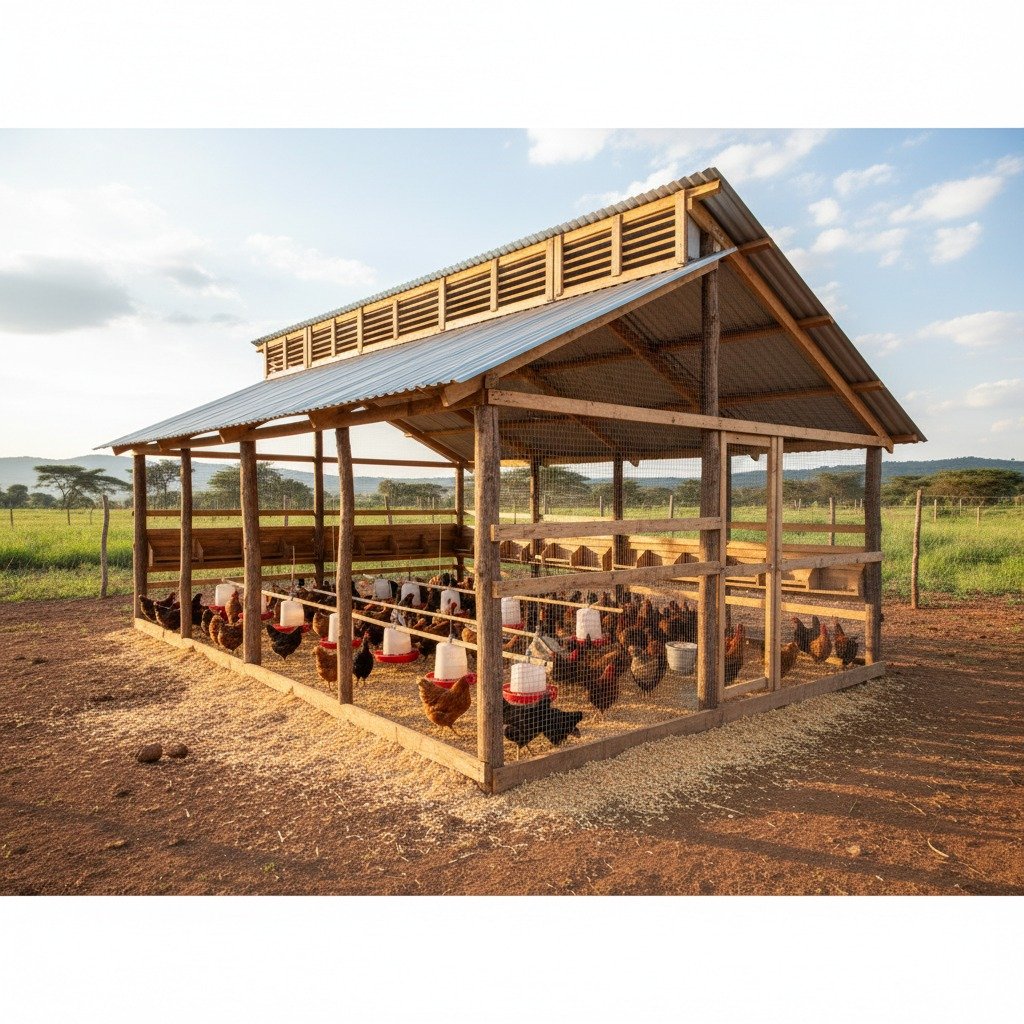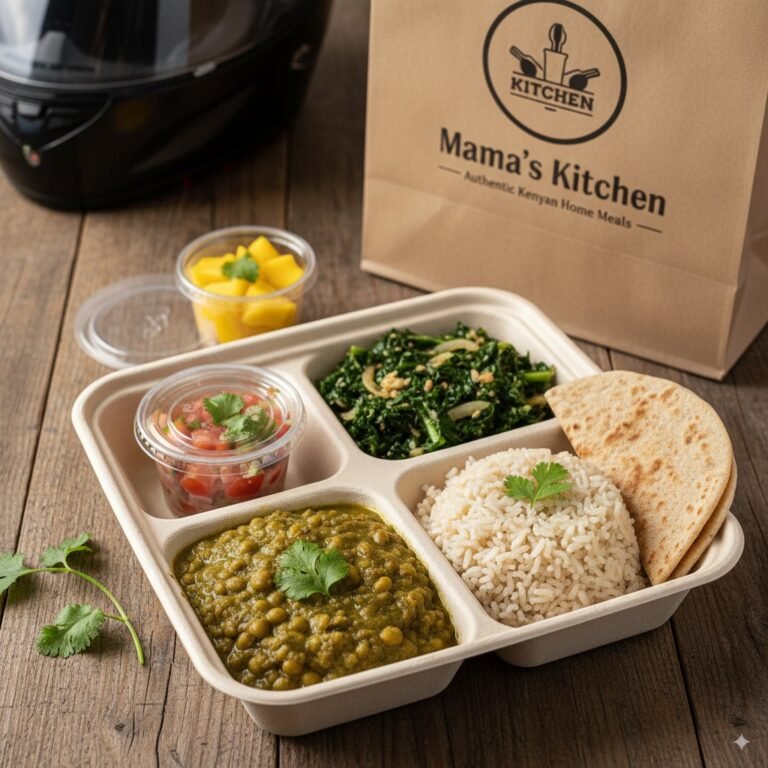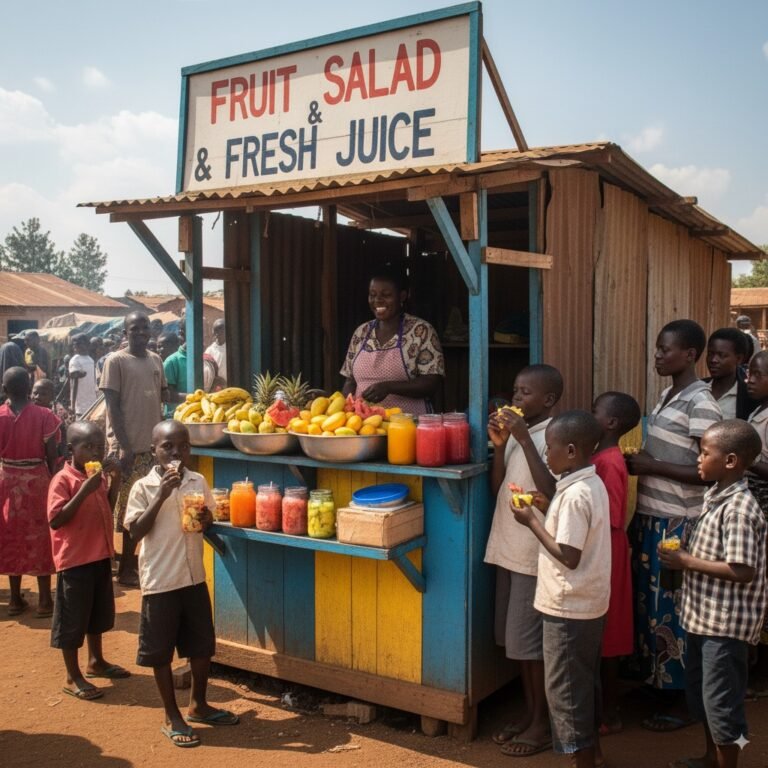How to Start a Kienyeji Poultry Farming Business in Kenya
Introduction
The kienyeji poultry business in Kenya is one of the most popular and reliable agribusiness hustles. Unlike broilers or exotic breeds, kienyeji (indigenous) chickens are hardy, affordable to raise, and in high demand for both meat and eggs. Families, hotels, and butcheries love kienyeji products because they are considered healthier and tastier. With low startup costs and the ability to begin from home, this business is accessible even for beginners.
Startup Costs 💰
The capital depends on the number of birds and your setup.
- Capital Needed: KES 10,000 – 30,000
- Key Expenses:
- Day-old chicks or mature hens — KES 50 – 300 each
- Feeds and supplements — KES 5,000 – 10,000
- Housing (simple chicken coop) — KES 3,000 – 7,000
- Feeders, drinkers, and vaccination — KES 2,000 – 5,000
- Branding and marketing (optional) — KES 1,000 – 2,000
💡 Tip: Start with 20–50 birds and expand gradually.
Why This Business Works ✅
- High Demand: Hotels, butcheries, and households prefer kienyeji.
- Low Maintenance: Indigenous chickens are hardy and resistant to diseases.
- Affordable Startup: You can start with just a few birds.
- Multiple Income Streams: Sell meat, eggs, and chicks.
- Scalable: Start in your backyard and grow into a full poultry farm.
Step-by-Step Setup 🛠️
1. Build a Simple Coop
Provide shelter that is:
- Well-ventilated.
- Secure against predators.
- Easy to clean.
2. Buy Healthy Chicks
Source from trusted hatcheries or suppliers. Start small (20–50 birds).
3. Feed Properly
Use kienyeji feeds or supplement with kitchen leftovers, maize, greens, and worms. Balanced feeding ensures faster growth and more eggs.
4. Vaccinate and Keep Clean
Common diseases include Newcastle and Gumboro. Vaccinate and disinfect regularly to avoid losses.
5. Sell to the Right Market
Target:
- Households (direct sales).
- Local hotels and butcheries.
- Market days in rural towns.
Profit Breakdown 📊
Example:
- 50 chickens bought at KES 150 each = KES 7,500.
- Rearing costs (feeds, vaccines, housing) = KES 12,500.
- Total investment = KES 20,000.
After 5–6 months:
- Sell each chicken at KES 600.
- 50 x 600 = KES 30,000 sales.
- Profit = KES 10,000 from meat alone.
Eggs:
- 30 hens laying 15 eggs daily.
- Sell at KES 15 each = KES 225 daily.
- Monthly = KES 6,500 extra.
👉 With 100+ chickens, profits can exceed KES 30,000 monthly.
Challenges & How to Overcome Them ⚠️
- Diseases: Can wipe out flocks.
- Solution: Vaccinate on time and maintain hygiene.
- Predators: Dogs, hawks, and snakes attack chickens.
- Solution: Secure housing with wire mesh and raised coops.
- Feed Costs: Commercial feeds can be expensive.
- Solution: Mix with local feed sources (greens, maize, termites).
- Market Access: Selling may be slow in some areas.
- Solution: Contract with hotels, butcheries, or create a delivery model.
Tips to Grow 🚀
- Hatch and sell day-old chicks for extra profit.
- Add value by selling dressed (slaughtered) chicken.
- Keep records of feeding, vaccination, and egg laying.
- Partner with agrovets to supply feeds and medicine.
- Brand your farm with a name like “Healthy Kienyeji Poultry Farm.”
Frequently Asked Questions (FAQ) ❓
Q: How much do I need to start kienyeji poultry farming in Kenya?
A: With KES 10,000 – 30,000, you can build a coop, buy chicks, and feeds to get started.
Q: How profitable is kienyeji poultry farming?
A: Small-scale farmers can make KES 10,000 – 30,000 monthly. Large flocks earn more.
Q: How long before kienyeji chickens are ready for sale?
A: 5–6 months for meat, 4–5 months for eggs.
Q: Do I need a license?
A: For small backyard farming, no. For large farms, a county agribusiness license is recommended.
Conclusion
The kienyeji poultry business in Kenya is one of the most affordable and profitable agribusiness hustles. With as little as KES 10,000 – 30,000, you can start with a few chickens, grow steadily, and earn from both meat and eggs. By focusing on proper feeding, hygiene, and marketing, you can scale into a sustainable poultry farm.
👉 Explore more hustler-friendly opportunities in the Business Ideas Hub — with over 50+ small businesses you can start today.







